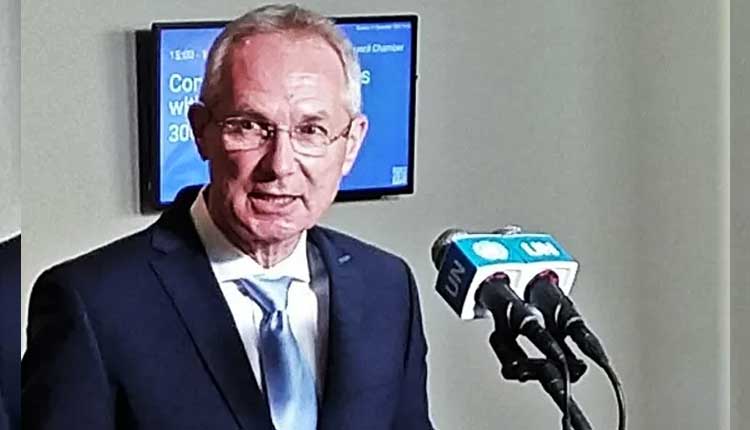United Nations: UN General Assembly President Csaba Korosi has warned that the world is facing risks of nuclear proliferation and nuclear catastrophe not seen in decades.
In remarks at a General Assembly plenary meeting on the report of the IAEA for 2021, Korosi on Wednesday urged member states to cooperate with the UN nuclear watchdog to ensure nuclear safety, Xinhua news agency reported.
International events last year had a substantial impact on the work of the IAEA. Grave developments have been compelling it to respond to a whole new set of adverse circumstances, he said.
“The tendency is frightening: the world is faced with risks of nuclear proliferation and nuclear catastrophe not seen in decades.”
The conflict in Ukraine has heightened these concerns and sparked a global energy crisis, sending prices soaring. The IAEA strives to meet the demands of this moment with expert resolve to bring about nuclear safety and stability in this time of interlocking crises, he added.
Korosi noted that an IAEA mission in Zaporizhzhia, Ukraine, is working around the clock to ensure the safety and security of the nuclear power plant there — the largest in Europe — and to prevent a nuclear disaster.
“We simply cannot allow nuclear safety in Ukraine and beyond to be jeopardised,” he said, adding that IAEA experts are in a unique position to provide up-to-date and credible information from the ground.
Korosi urged all parties to cooperate fully with the IAEA to ensure nuclear safety, and reiterated the importance of impartial, factual information that IAEA provides about the many nuclear issues.
Concerns over nuclear energy are not limited to one region. Moves to erode nuclear non-proliferation regimes are very dangerous and constitute a major threat to peace and security, he said.
As more countries turn to nuclear energy to meet their needs, especially when faced with drastic energy shortages, the IAEA’s responsibility to ensure that nuclear technologies are safe, secure and peacefully used has only grown, Korosi added.
At last year’s UN Climate Change Conference, nuclear energy was high on the global climate agenda, and the IAEA opened new opportunities for the use of nuclear techniques in tackling pollution and other environmental challenges, he noted.
With this year’s UN Climate Change Conference underway, he encouraged member states, businesses and civil society to engage with the IAEA in answering two crucial questions: which are the available options when climate change meets an energy supply crisis? what does science say about the connection between nuclear energy and the environment?
“So far, we have only scratched the surface of these questions,” he said.
(IANS)
















